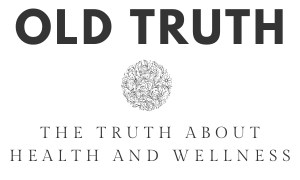The CBD product market is exploding in popularity, and consumer demand is high. CBD products are now found in major retailers, pharmacies, and wellness stores across the country. The more the market grows, the more interest in starting CBD businesses grows with it. Take a look at these three tips for starting your own CBD company.
Product Knowledge
There are two different ways that CBD is derived and several different products it is made into. CBD is extracted from both cannabis and hemp plants. The difference between hemp-derived CBD and cannabis-derived CBD products is THC content. Hemp contains less than 0.03 percent THC which means it is federally legal to cultivate, harvest, and process. Cannabis contains more than the federally accepted THC content and remains illegal.
THC is the active compound in cannabis that gives an intoxicated or ‘high’ feeling. CBD products give users the therapeutic effects of cannabis without the intoxicated feeling. There are four common types of CBD products.
Sublingual tinctures: This is a CBD oil packaged in a small bottle with a dropper. The oil is dropped under the tongue and absorbed into the body.
CBD edibles: These are baked goods, candies, and foods infused with CBD.
Vape concentrates: These CBD oils and waxes are vaporized with an electronic device and inhaled.
CBD topicals: These are gels, creams, and sprays that are applied to the skin to treat aches and pains.
Of course, more varieties of CBD products exist and will become available as the market evolves.
Legal Obligations
The Farm Bill of 2018 federally legalized industrial hemp and hemp extracts. The Food and Drug Administration is responsible for the regulation of the hemp and CBD industries under the Federal Food Drug and Cosmetic Act. The FDA is strict about the labeling and marketing of CBD products. Product labels may not make any therapeutic or medical claims such as preventing, diagnosing, treating, or curing serious diseases.
It’s also important to consider state laws regarding the sale and transport of CBD products. Businesses are responsible for vetting suppliers and they must ensure that hemp and the resulting hemp CBD products are grown according to both state and federal law.
Consult a lawyer to get a true grasp of the laws surrounding CBD products. McAllister Garfield is a marijuana business lawyer in Colorado who represents some of the leading marijuana companies in the nation. Working with ancillary and related businesses, McAllister Garfield is a full-service law firm pioneering legal strategies and services for the marijuana industry.
Marketing and Selling
Major online retail platforms do not allow for the marketing or selling of CBD products. Use an organic search strategy and customer loyalty programs to market CBD products in compliance with local and state laws. Use content marketing that will direct customers to a business website where products can be advertised and purchased. This can be done by setting up an SEO blog that increases the website’s relevance, authority, and trustworthiness.
Target CBD users with an SEO strategy that attracts their attention. Create visually compelling infographics to show the benefits of CBD. Engage customers with videos, photos, and industry surveys. Avoid using paid ads on social media as these can risk account suspensions or bans. Create a social media presence that is compliant with each platform.
Keep promotional content safe with free photo storage from ibi. With 1 TB of storage space, ibi collects over 250,000 photos or 100 plus hours of videos. Photos can be collected from phones, social media or the cloud and are then backed up and stored on ibi. From there, ibi allows users to selectively choose who to share photos and videos with.
When it comes to starting your own CBD company, the process is clear. Use this guide to ensure you are taking the right steps to ensure your business thrives.


Comments are closed, but trackbacks and pingbacks are open.